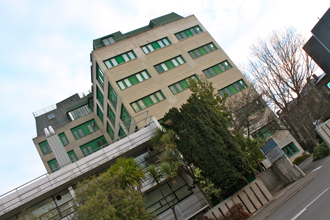What is pharmacology?
Pharmacology is the science of the effects of drugs and other chemicals on biological systems. Pharmacologists investigate how drugs and chemicals affect the individual cell, the organ, and the entire body.
The science of pharmacology is at the forefront of modern medicine, designing, developing and testing drugs that have the potential to alleviate, and in some cases cure diseases that afflict both humans and animals.
If you want a foundation in pharmacology then the following degrees will be of interest to you:
- Bachelor of Science majoring in Pharmacology
- Bachelor of Science minoring in Pharmacology
- Bachelor of Biomedical Sciences (BBiomedSc) majoring in Drug and Human Health
- Bachelor of Science with Honours
- Master of Science in Pharmacology
- Doctor of Philosophy
Furthermore we also teaching into high school projects that are run by the university (Hands-On At Otago and Science Academy).
What is toxicology?
Toxicology is closely related to pharmacology but specialises in the study of the harmful effects of drugs and other chemicals on biological systems.
While some toxicologists are concerned with poisons and overdose, others study and provide information about the potentially toxic effects of other chemicals to which we are exposed either deliberately or inadvertently.
Environmental toxicology is another important field as it focuses on the potential harm from chemical exposure in both the workplace and the environment.
A range of toxicology topics are covered in the BSc in Pharmacology, however, we also offer the following specific toxicology degrees:
- Bachelor of Science minoring in Environmental Toxicology
- Master of Science in Toxicology
- Doctor of Philosophy
The Department of Pharmacology and Toxicology
The Department of Pharmacology and Toxicology is committed to high quality teaching within Health Sciences (we teach medical, dental, and pharmacy students—as well as our own pharmacology and toxicology students).
We are a research-intensive department. We have contributed markedly to biomedical research both nationally and internationally and have trained many postgraduate students, a number of whom have attained a high international reputation for their research.
Where we sit within the University of Otago
The University is divided into four academic divisions:
The Division of Health Sciences Division incorporates the Faculty of Dentistry; Otago Medical School; the School of Biomedical Sciences; the School of Pharmacy; the School of Physiotherapy; University of Otago, Christchurch; and University of Otago, Wellington.
We belong administratively to the School of Biomedical Sciences (BMS). Our Head of Department reports directly to the BMS Dean, who in turn is responsible to the Pro-Vice-Chancellor, Division of Health Sciences.
The BMS was established at the beginning of 1996 and comprises:
- Department of Anatomy
- Department of Biochemistry
- Department of Microbiology and Immunology
- Department of Pharmacology and Toxicology
- Department of Physiology
Although part of Health Sciences, we are closely allied academically with the Division of Sciences through its Bachelor of Science (BSc) programme.
We also have research collaborations with other departments throughout Health Sciences and Sciences.
Management and staffing
Leadership and management are provided by our Head of Department, Professor Michelle Glass. All our academic staff are research-active and committed to teaching informed by research.
The Department is an Academic Resource Responsibility Centre within the BMS, giving us the flexibility to manage our own finances, establish our own priorities, and act accordingly.
Staff in the Department of Pharmacology and Toxicology
Research
Academic and research-support staff in the research laboratory groups of the Department are engaged in high quality, internationally-recognised research focused on the following research themes:
- Cancer Research
- Cannabinoids and Neuropathic Pain Research
- Cardiorenal and Diabetes Research
- Free Radical Research
- Neuroscience Research
- Neurotoxins/Seizures/Stroke Research
- Seizures/SUDEP/Stroke Research
- Stroke
- Vestibular and Auditory Research
State-of-the-art technologies—including the use of in-vivo disease models—are used to undertake integrative, cellular, and molecular investigations aimed at understanding animal and human pathophysiology (and to delineate targets for novel drugs).
Research in the Department is funded by international and national research organisations such as:
- Health Research Council of New Zealand
- Foundation for Research, Science and Technology
- Lottery Health
- Neurological Foundation
- National Kidney Foundation
- Otago Medical Research Foundation
- Marsden Fund
- The Maurice and Phyllis Paykel Trust
Individual researchers within the Department maintain strong collaborative links with other departments within the University and laboratories in all five continents.

The Adams Building, home of the Department of Pharmacology and Toxicology.